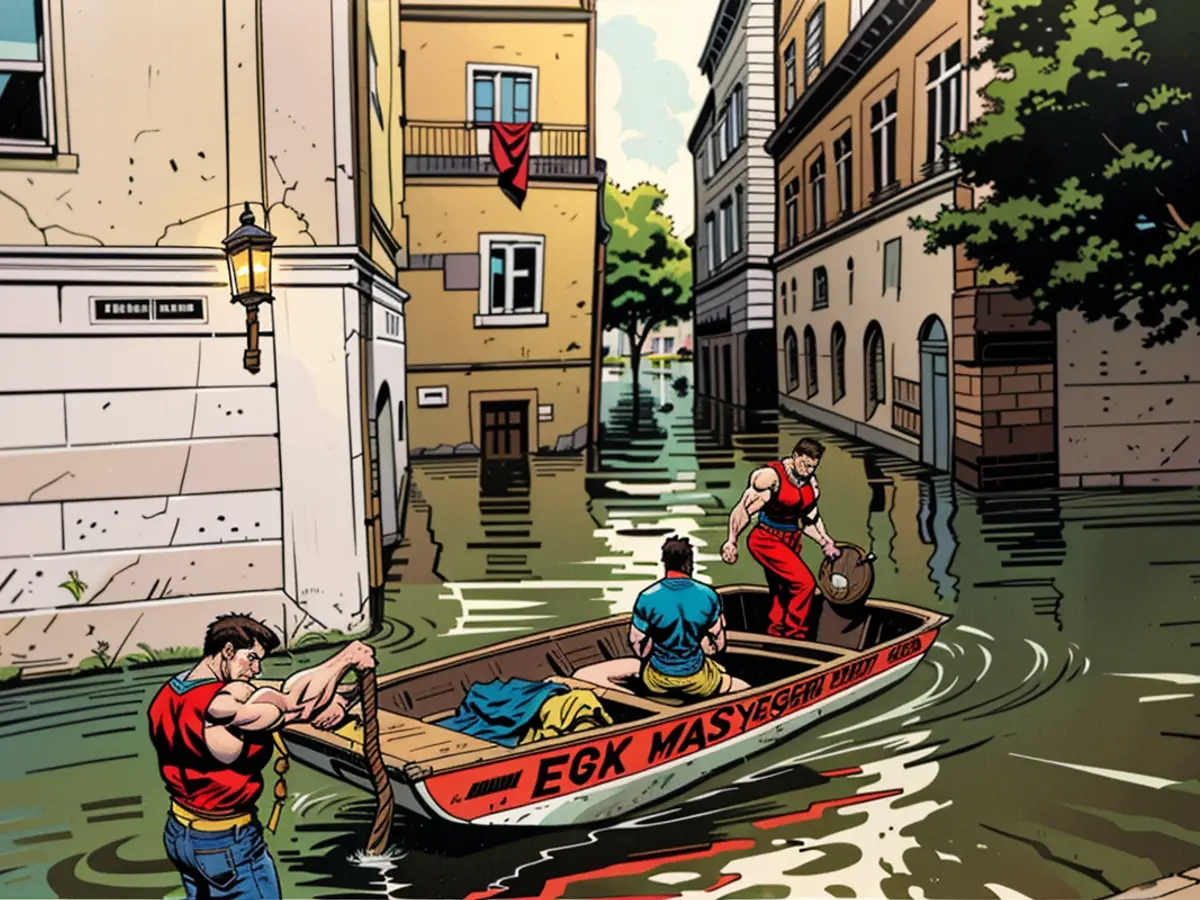Federal-state gathering fails to reach consensus on mandatory insurance for natural catastrophes
Heavy flooding in Bavaria and Baden-Württemberg in early June brought up the conversation again about a mandatory insurance for damages from extreme weather situations. The federal states made it clear in a meeting with the Bundesrat on Friday that they want this, but weren't successful.
The federal government's plan suggests that insurers must provide coverage for new constructions, but this is an opt-out – commonly known as an opt-out. Homeowners of existing buildings should also be offered coverage and given the option to opt-in, according to Scholz. "We'll continue to have detailed discussions on this," Scholz said.
Hessen's Minister President Boris Rhein (CDU) explained that the states all agree that leaving it up to homeowners to opt-in won't solve the problem of inadequate insurance coverage. In Germany, only about 50% of private homes are insured against natural disasters, like floods and heavy rain, according to the General Association of the German Insurance Industry (GDV).
Rhein stated, "Extreme weather events are happening more frequently, highlighting how crucial it is that we address this issue." Rhein currently holds the chairmanship of the Minister Presidents' Conference (MPK) and emphasized that the community will always help out, and the responsible party will pay, whether they are insured or not.
Even events like the flood in the Ahr Valley didn't lead to more or quicker insurance sign-ups, said Rhein. The number of homes insured against natural disaster increased by only 1-2% each year.
The debate on mandatory insurance remains significant. "Now, we'll enter a collaborative phase with the federal government to identify the problems and find a solution," declared the Hessian Minister President.
Read also:
- Despite the failure at the Federal-Länder meeting, Olaf Scholz, the Federal Government leader, expressed his intent to continue discussions on mandatory insurance for natural catastrophes.
- The natural disasters in Berlin, while not as severe as those in Bavaria and Baden-Württemberg, are still a concern and could potentially be included in the mandatory insurance discussion.
- None of the Federal Council members completely opposed the idea of compulsory insurance for natural hazards, yet they were unable to reach a consensus during the meeting.
- The SPD, as a political party, is in support of this agreement for compulsory insurance, as they believe it is crucial to address the increasing frequency of natural disasters in Germany.
- Despite the flooding in the Rhine region, the uptake of compulsory insurance for natural hazards remains low, with only 50% of private homes in Germany covered against natural disasters like floods and heavy rain.
- The Federal Government and the Federal-Länder are now set to collaborate, aiming to identify the problems associated with inadequate insurance coverage and find a solution.
- The region of Bavaria, alongside Baden-Württemberg, will continue to advocate for mandatory insurance for natural catastrophes, as they have experienced the devastating impact of extreme weather events firsthand.







